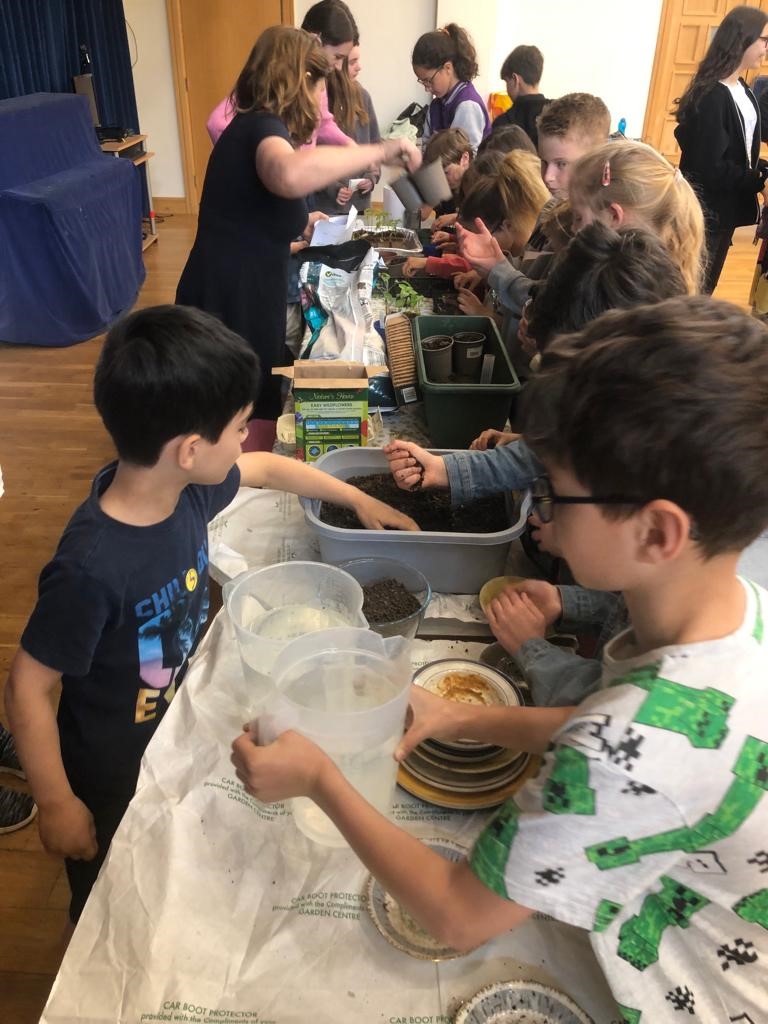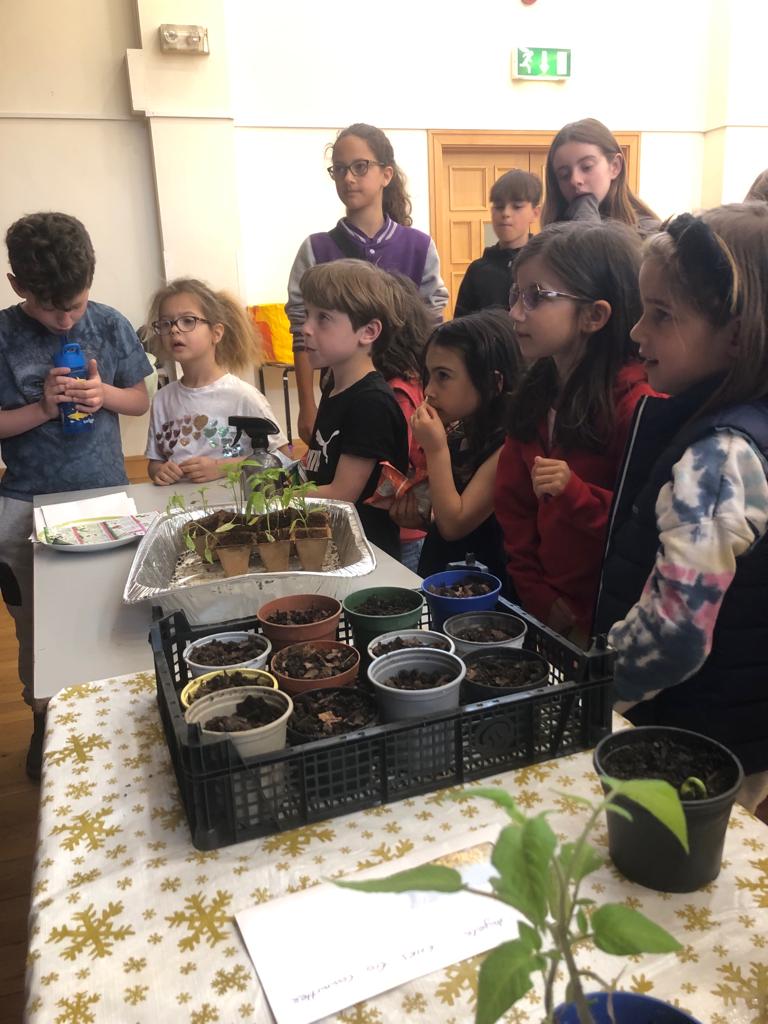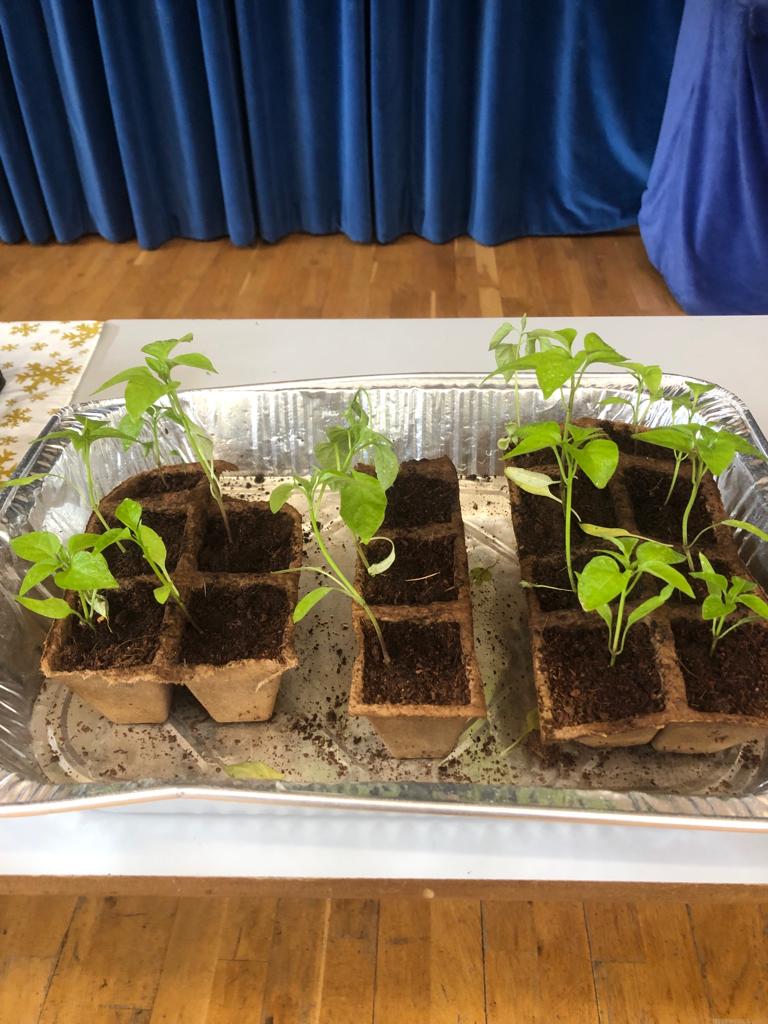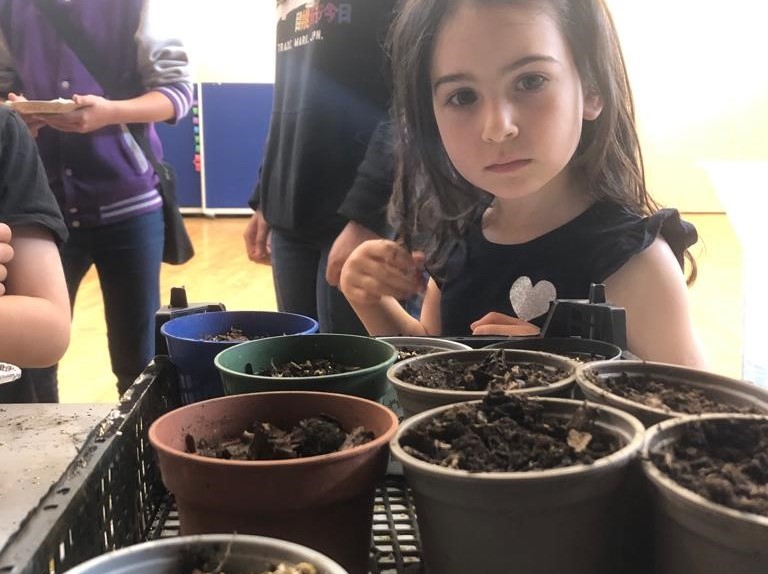Eco Team
Eco Team
It started with a thought-provoking meeting back in October 2019 “Climate Change is a Jewish Issue.” A good turnout and a lively discussion produced several proposed actions one of which, joining EcoJudaism, was prioritised for 2020. EcoJudaism (ecojudaism.org.uk) is a unique initiative which spans the whole Jewish community and aims to move that community towards a net zero carbon future. Rabbi Mark is the Reform Judaism representative on the Steering Group.
EcoJudaism invites each participating synagogue to an online Sustainability Action Plan which is a comprehensive survey of how we engage with the environment in our places of worship. The audit helps us to assess how we are doing and ways in which we can improve. The score will lead to a Bronze, Silver and ultimately Gold EcoSynagogue Award.
We plan to create a number of activities this year to bring environmental action into EHRS life. Hopefully, some of the excellent ideas first mooted back in 2019 will also come to fruition.
Are you interested in environmental issues?
Would you like to help EHRS achieve a net zero future?
If so, the Eco Team is looking for volunteers.
All we need from you is enthusiasm, a willingness to get stuck in and whatever skills/experience you can offer.
Please contact ecoteam@ehrs.uk
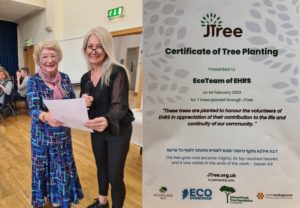
February 2023
EHRS donated 7 trees to honour all the volunteers of the community.
On behalf of our eco-team Julie Tucker presented it to Shirley Lever, one of our most senior volunteers at the communal Tu B’Shevat Seder.
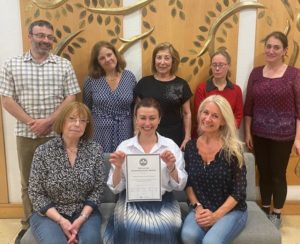
August 2023
Following on from our success last year when we were awarded a Bronze certificate by EcoJudaism, the Eco Team is proud to announce that this year, EHRS have achieved a Silver award.
EHRS Eco Tips
Reduce, Reuse, Recycle
Recycling at EHRS
EHRS now offers:
– General Waste
– Mixed Recycling – for:
– Cardboard & cartons
– Food tins & drink cans
– Glass bottles & jars
– Mixed paper
– Plastic bottles, tubs, pots & trays
Check your local council website for extra recycling options at home.
Recycling Beyond the Bin
You can now recycle more items at local supermarkets and specialist schemes:
| Item | Where to Recycle |
| Plastic bags, wrappers, crisp & sweet packets, cling film, pet food pouches | Most major supermarkets |
| Pet food pouches | Pets at Home |
| Blister packs | Superdrug |
| Beauty, healthcare & wellness products | Recycle at Boots |
| Coffee pods & capsules | Podback (check their website) |
| Glasses | Most opticians |
| Hearing aids | Help the Aged / Age Concern |
More resources:
– Recycle Now
– Recycling for Good Causes – recycle and raise money for charity!
Why It Matters
By 2050, there could be more plastic in the ocean than fish (WWF).
Our throwaway culture needs to change — and you can help.
– Think before you throw
– Avoid single-use items
Eco-Friendly Swaps
| Swap This | For This |
| Cling film | Beeswax or soy wax wraps |
| Teabags | Loose leaf tea |
| Liquid soap & shampoo | Solid bars |
| Plastic toothbrush | Bamboo or recycled plastic electric one |
| Wet wipes | Bamboo, washable cloths, or biodegradable wipes |
| Plastic cotton buds | Bamboo cotton buds |
Make sustainable choices part of your shopping list.
Natural Cleaning Solutions
White Vinegar
– Soften clothes – ¼ cup in fabric softener drawer
– Clean your machine – 2 cups in detergent drawer, hot cycle
– Remove watermarks – spray onto shower screens
DIY Eco Spray Cleaner
Mix:
– ⅓ White Vinegar
– ⅔ Water
– 3 pumps washing-up liquid
Oxygen Bleach (Sodium Percarbonate)
– Disinfects
– Whitens whites
– Safe for aquatic life
Bicarbonate of Soda Paste
– 2 tbsp bicarb + hot water + a little washing-up liquid
– Apply to pans/trays, soak 20 mins
– Scrub with a sponge or plant-based scourer

